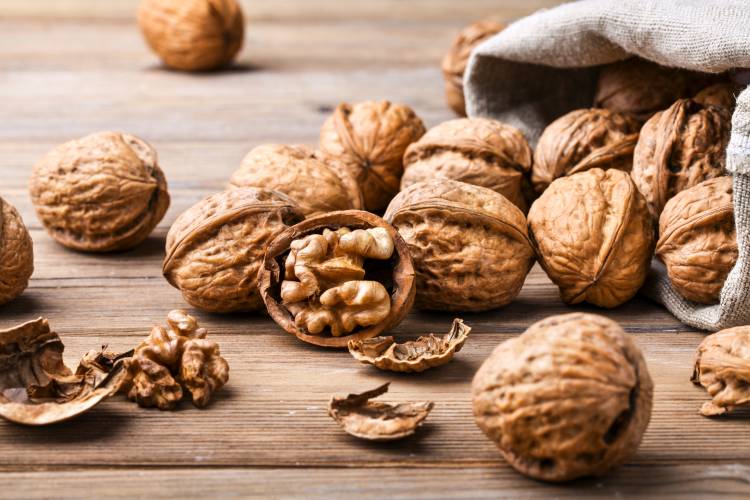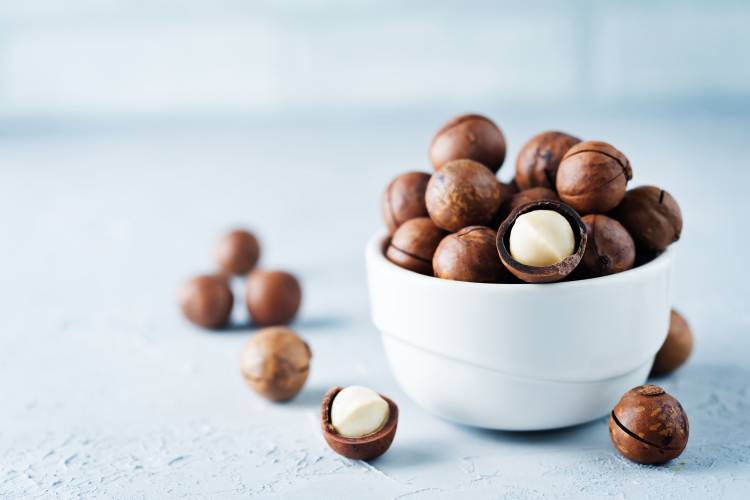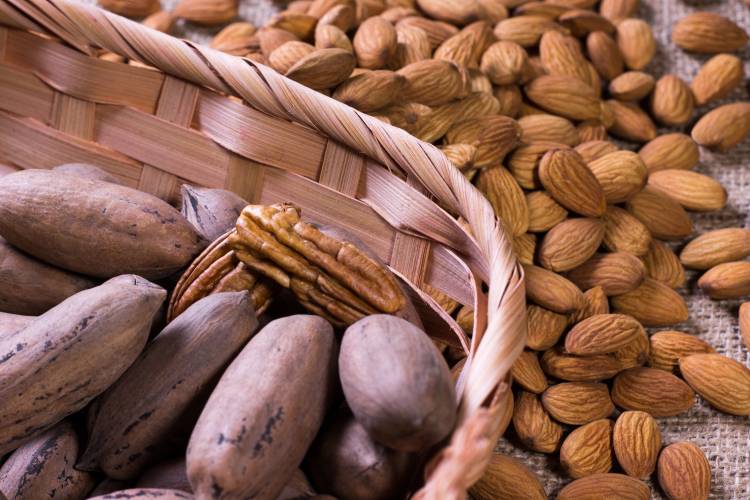Properties of nuts
Nuts are the dried fruit par excellence. They are a source of vitamins and minerals and, needless to say, their incredible flavour makes them popular with everyone.
fresh food
Share

Nuts are one of the dried fruits which enjoy the greatest popularity among consumers. With so many beneficial properties, it is easy to see why this is the case. The benefits of nuts are abundant: they boost the cardiovascular, nervous and digestive systems, and they provide many vitamins and minerals. Of all dried fruits, nuts contain the most antioxidants.
Moreover, because of their ability to be substituted for other foods and their power in satisfying the appetite, nuts are good for people who want to lose weight. They are also an energy-rich and very nutritional food (an ideal accompaniment for sportspeople), and are rich in potassium (which boosts muscle development), zinc (which strengthens the nervous system), magnesium and phosphorus. The vitamins they offer don’t lag behind either, with the B group contributing to proper brain and nervous system function. Added to this are protein and fibre, which are also key constituents of nuts.
Nuts and their properties make them ideal for eating at different times and on an infinite number of occasions. Additionally, this is one of the most versatile foods in the kitchen and is present in recipes such as salads or sauces for stews, as an ingredient in bread, in pasta recipes and in sweets and desserts. And if all these reasons to enjoy nuts were not enough, it is worth knowing that there isn’t just one type of nut, there are many!

Macadamia or pecan nuts are some of the varieties of nuts that you can find relatively easily. Like all nuts, Macadamia nuts have properties that are of great interest, such as the unsaturated fatty acids they contain, which are essential for preventing cardiovascular problems. This type of nut is also rich in fibre, which regulates intestinal transit, and phosphorus which strengthens and develops not just your bones but also your teeth. Native to Australia, it is characterised by having a whitish coloured interior. As a matter of interest, apart from being eaten, they are also used as oils for application on the skin. They should be eaten raw and in moderate quantities, as they have a high energy value, as do all nuts.
Furthermore, the pecan nut also possesses properties that are very interesting for health: its unsaturated fatty acids, such as omega 3 (as in all other nuts) protect the cardiovascular system; fibre and vegetable sterols reduce the absorption of triglycerides, and the copper and magnesium it contains contribute to good brain function. As for its flavour, it is slightly sweeter than the traditional nut and it is notable for having a slightly golden and elongated shape.
What is the best time of day to eat nuts?
All things considered, there is a question that you are sure to ask: how many nuts can you eat a day? General opinion is that, to maintain a balanced diet, you should eat between 30 to 40 g per day, an amount that equates to around six nuts a day.
Lastly, you should know that there are benefits to eating nuts in the evening, because nuts help you to get to sleep and even improve sleep quality, as they are one of the best sources of melatonin (also known as the “sleep hormone”). Apart from this, due to all the benefits we have discussed above, nuts are also a good choice to include in your supper. Perhaps nuts are a food that you may not have been aware that you wanted, but which you definitely need to include in your life. Moreover, nuts contain tryptophan (as do other nuts), which is an essential amino acid that helps in melatonin synthesis, boosts your mood and is part of the sleep cycle, although this is not the only reason for eating them in the evening…







